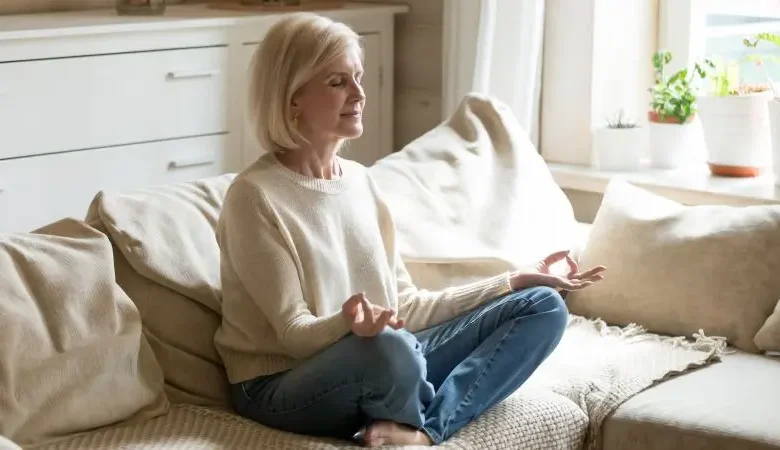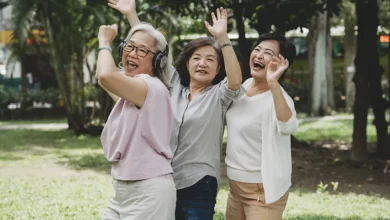Ways how yoga can help aging gracefully

As we age, maintaining mental sharpness and emotional balance becomes increasingly important and experts claim that Yoga – an ancient practice combining physical postures, breathing exercises and meditation – has emerged as a powerful tool to support cognitive function and emotional well-being in older adults. According to them, this holistic approach offers numerous benefits that can help individuals navigate the challenges of ageing with greater ease and resilience.
Yoga for brain function – Improves memory and cognitive development
In an interview with HT Lifestyle, Himalayan Siddhaa Akshar, Founder of Akshar Yoga Kendraa, shared, “One of the primary ways yoga supports mental acuity is through its positive effects on brain structure and function. Regular Yoga practice has been shown to increase gray matter volume in several brain regions associated with cognitive function, including the hippocampus, which plays a crucial role in memory formation and spatial navigation. This increase in brain volume may help counteract the natural age-related decline in cognitive abilities, potentially delaying or reducing the risk of conditions like dementia and Alzheimer’s disease.”
Meditation for concentration
Revealing that the meditative aspects of Yoga practice can enhance attention and focus, Himalayan Siddhaa Akshar said, “Many Yoga styles incorporate mindfulness techniques, encouraging practitioners to remain present and aware of their body, breath, and surroundings. This cultivated attentiveness can translate into improved concentration and cognitive flexibility in daily life, helping older adults stay mentally sharp and adaptable.”
Physical health through Yoga
The physical component of Yoga also contributes to cognitive health and as per Himalayan Siddhaa Akshar, this is because, “By engaging in gentle to moderate physical activity, Yoga promotes better circulation throughout the body, including the brain. Improved blood flow ensures that brain cells receive an adequate supply of oxygen and nutrients, which is essential for optimal cognitive function. Additionally, the coordination required to perform various yoga poses challenges the brain, creating new neural connections and potentially enhancing cognitive reserve.”
Nervous system regulation
On the emotional front, Himalayan Siddhaa Akshar highlighted that Yoga offers a myriad of benefits that can significantly improve well-being in later life. The practice is known for its stress-reducing effects, which are particularly valuable as older adults face unique stressors such as health concerns, loss of loved ones, or changes in life roles.
Yoga builds emotional resilience
Himalayan Siddhaa Akshar asserted, “Yoga fosters emotional resilience by promoting self-awareness and acceptance. As practitioners learn to observe their thoughts and feelings without judgment, they develop a greater capacity to manage difficult emotions and maintain equilibrium in the face of life’s challenges.”
Community and social life
Given that the social aspect of Yoga classes can also contribute to emotional well-being, Himalayan Siddhaa Akshar pointed out, “Participating in group sessions provides opportunities for social interaction and community building, which are crucial for combating feelings of isolation or loneliness that some older adults may experience. The sense of belonging and support derived from a yoga community can boost mood and overall life satisfaction.”
Positive mindset
Yoga’s emphasis on mind-body connection can help older adults develop a more positive relationship with their changing bodies. Himalayan Siddhaa Akshar opined, “As individuals become more attuned to their physical sensations and capabilities through Yoga practice, they often gain a greater appreciation for what their bodies can do, rather than focusing on limitations. This shift in perspective can lead to improved body image and self-esteem, contributing to a more positive emotional state.”
Yoga offers a comprehensive approach to supporting mental acuity and emotional well-being in ageing as its multifaceted benefits can enhance quality of life in later years. By incorporating Yoga into their lifestyle, older adults can cultivate a sharper mind, a more balanced emotional state and a greater sense of overall well-being as they navigate the journey of ageing.










